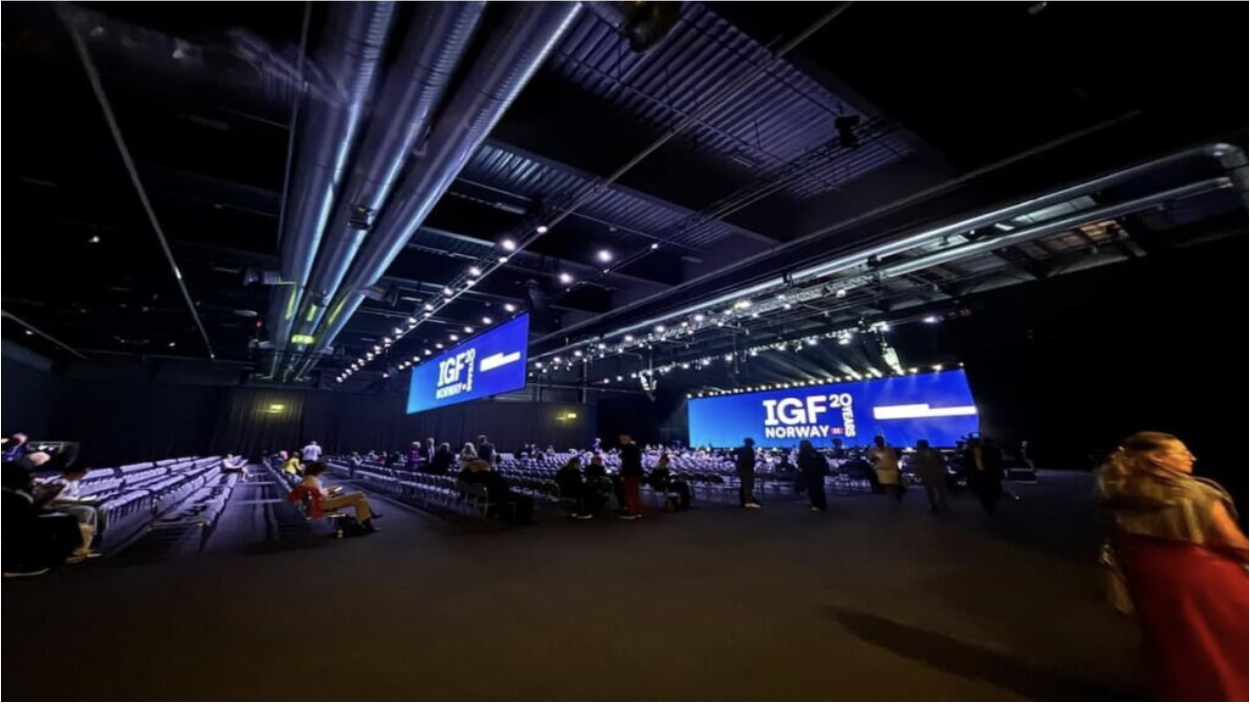BLOG
.png)
The Internet has revolutionized the world, yet linguistic barriers continue to restrict millions from fully harnessing its power, with only about 10 out of 7,100 global languages dominating online. This critical challenge was a central focus for CODI members as they took part in this year's International Governance Forum (IGF), the UN's annual global conference on the Internet's future. Held under the theme "Building Digital Governance Together,” several members of CODI traveled to Norway to participate in this multistakeholder forum, addressing salient digital policy issues and preserving an open, secure Internet for all.

During a session titled "Bridging the Digital Divide: Language Inclusion as a Pillar for Universal Access," CODI Founder and Chairman Ram Mohan moderated a panel on language accessibility in digital spaces, its impact on usability, challenges to multilingual domain names, and future opportunities in AI and Universal Acceptance (UA). The panel featured CODI members Toral Cowieson (Unicode Consortium), Theresa Swinehart (ICANN), Sophie Mitchell (auDA), Jennifer Chung (DotAsia), Manal Ismail (Egypt’s NTRA), and Christian Dawson (i2Coalition and CODI Co-Founder). Their discussion aimed to pinpoint policy gaps, technical challenges, and best practices for supporting multilingual digital ecosystems.
Each panelist offered unique insights into how proper Internet governance and global collaboration can address digital accessibility and rights. Ram Mohan stressed the importance of inclusive language policies, asserting, "Technology should be serving languages rather than the other way around." Experts further highlighted how limited online multilingualism and UA complexities have profound cultural and developmental implications, hindering full Internet participation due to language barriers. Christian Dawson emphasized connecting the unconnected, stating, "We are focusing our attention on how we can connect the unconnected. And there are lots of stakeholders who are doing that, putting efforts into last-mile connectivity. Identifying where there are gaps is an important thing that we need to be doing, but also where there is effective work that needs to be connected with the people who need to know that it’s being done is also a vital tool that needs to be done as well."
The session concluded with a robust Q&A and concrete recommendations from panelists for driving policy and technical innovations in support of linguistic diversity. These vital discussions in Norway are not an endpoint, but a crucial building block, empowering stakeholders to champion language inclusion in their fields. To truly promote online multilingualism and ensure everyone can use the Internet in their own language, key conversations about language barriers affecting digital access must continue, establishing a clear path forward.